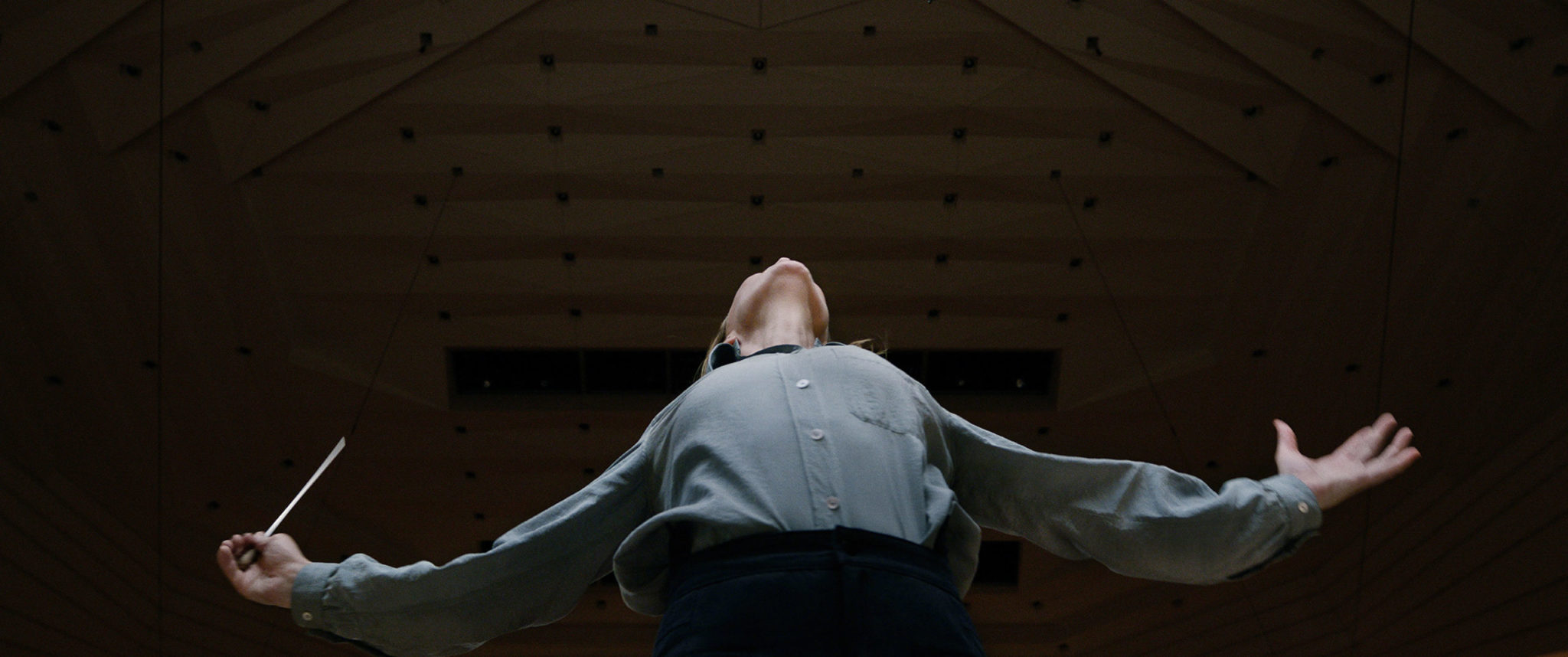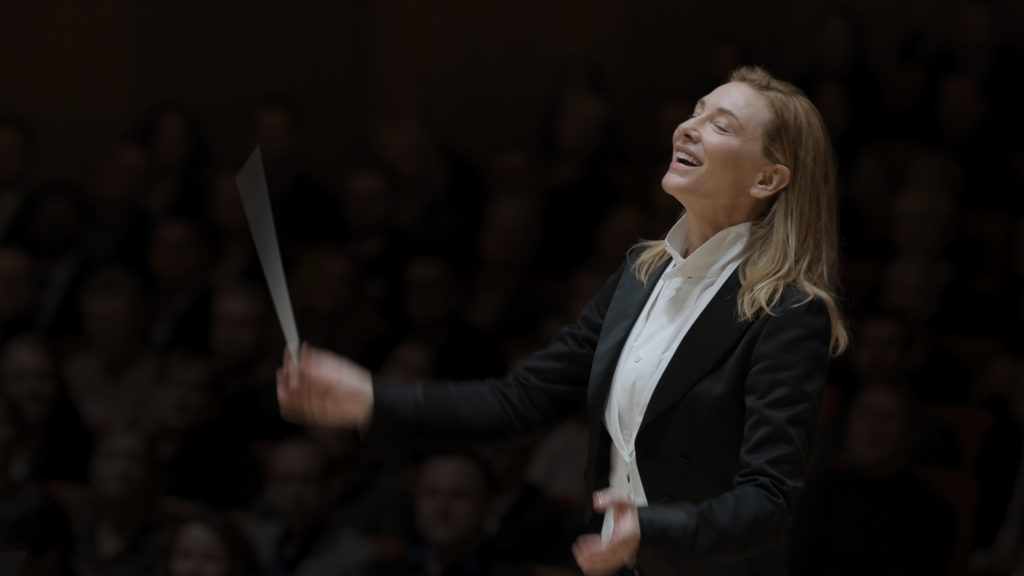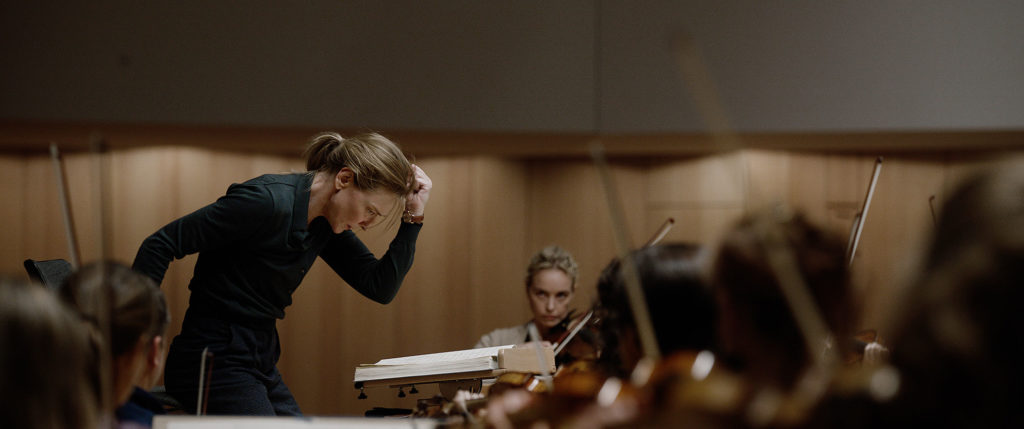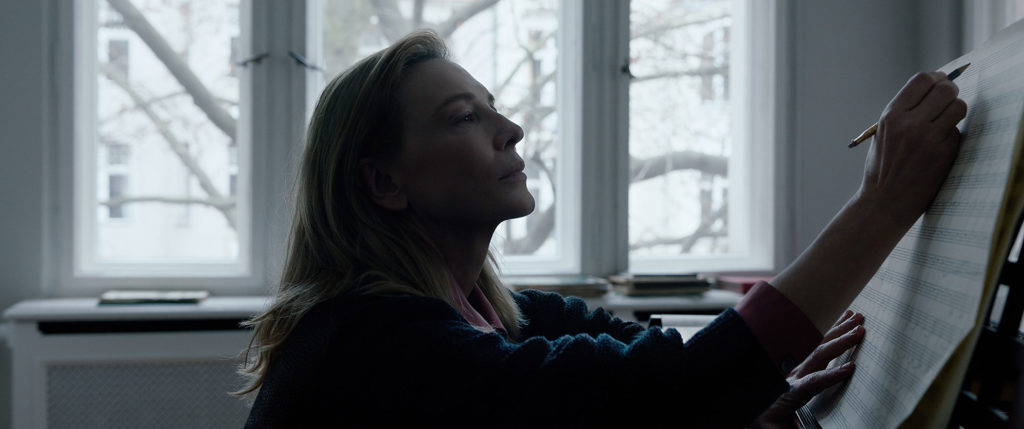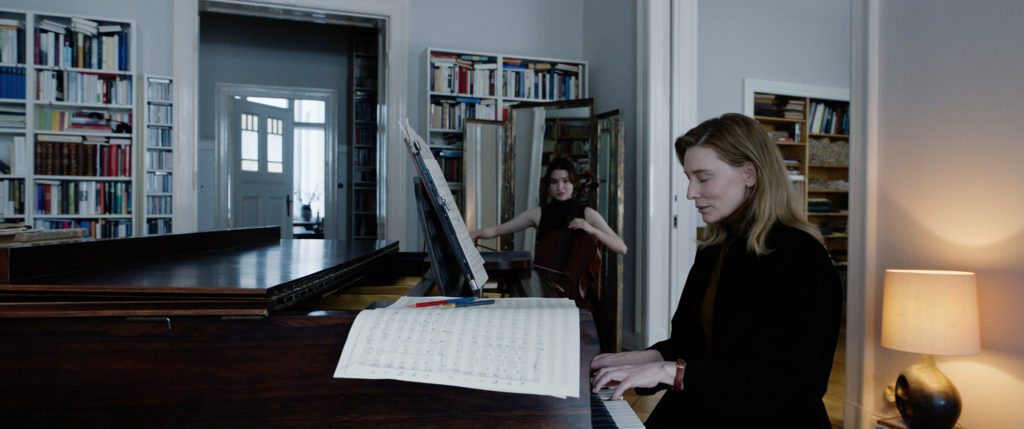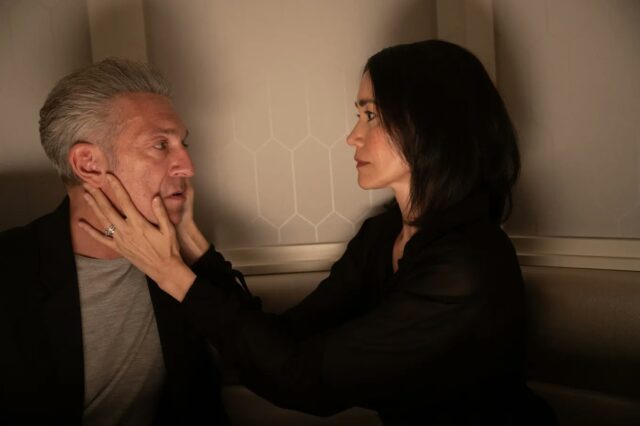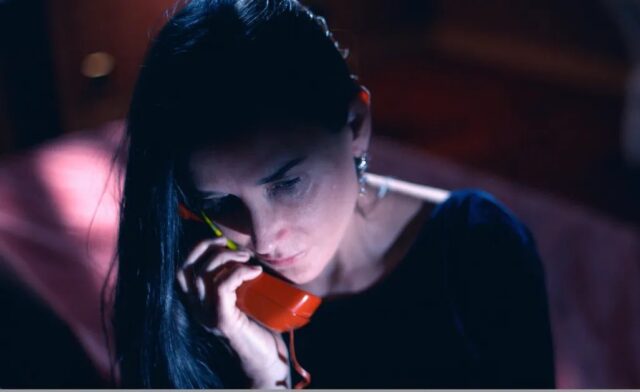REVIEW: Cate Blanchett Delivers Award-Worthy Performance In New Film Tár
Cate Blanchett (Aviator) is absolutely phenomenal in Tár and a master of her craft in the new thriller by Universal Pictures.
Blanchett gives the greatest performance of the year, along with executive producing, morphing into every crevice of privilege and reckless behavior afforded her character as the powerful Maestro, Lydia Tár, who is considered one of the greatest living composers and conductors and the first-ever female chief conductor of a major German orchestra in Berlin. Blanchett gives us two hours and 38 minutes of an incredible personality, which is not a real-life person, yet, everything about this film seems real. The film opens with an in-person New Yorker Q&A with Adam Gopnik, who plays himself, as he ticks off the long list of Tár’s accolades. Her assistant, Francesca (Noémie Merlant), watches from afar, standing within the audience, reciting every word. Soon after, Lydia belittles a conducting student at Juilliard who happens to be BIPOC and Gen-Z because he refuses to play the music of the problematic Bach. It’s really a rough demoralizing scene that brings you front and center to the stage set for who Lydia Tár really is.
Blanchett had some very heavy shoes to fill in playing this fictional character, who graduated Phi Beta Kappa from Harvard, became a piano performance graduate of the Curtis Institute, earned her Ph.D. in Musicology from the University of Vienna, specializes in music from the Ucayali Valley in Eastern Peru, and spent five years among the Shipibo-Konibo people. As a conductor, Tár climbed the ranks of the “Big Five” American orchestras, composing along the way, and earned herself EGOTs status with four of the major awards: Emmy, Grammy, Oscar, and a Tony.
Writer-producer-director Todd Field stated that he wrote Tár specifically for Cate Blanchett, and had she not agreed to the role, the film would have never seen the light of day.
Field stated, “This script was written for one artist, Cate Blanchett. Had she said no, the film would have never seen the light of day. Filmgoers, amateur and otherwise, will not be surprised by this. After all, she is a master supreme. Even so, while we were making the picture, the superhuman skill and verisimilitude of Cate was something truly astounding to behold. She raised all boats. The privilege of collaborating with an artist of this caliber is something impossible to adequately describe. In every possible way, this is Cate’s film.”
After seeing Blanchett’s performance, we see why. Cate’s work in this film is incredible as she takes on the stoic and measured personality of a genius composer, professor, and conductor who is preparing a live performance of ‘Mahler’s Fifth Symphony’ as well as a book launch. Cate did an immense amount of research and learned to speak German for this role. She also learned to play the piano, playing every single note in the film; her name saturates the film’s music end credits.
Over several weeks we see Lydia’s life rumble out of control as her unyielding womanizing, mixed with special favors that she meticulously thinks she has under control or has shelved, begin to turn on the incredible life she once created for herself. Tár is interesting in that it shows how someone so absorbed in self-education as a woman is severely lacking in self-awareness and how the women who surround her and weave in and out of her life bring that awareness and accountability.
Blanchett becomes Tár in every facet, from the way she moves with a very masculine energy air to the way she controls every element of her life, her lover at home, her child, her symphony, and her assistant. She’s in a long-term relationship with Berlin’s concertmaster Sharon Goodnow played by Nina Hoss, as they raise their adopted Syrian daughter, Petra, played by Mila Bogojevic.
Tár moves through this film untouchable until she soars too close to the flame when a female admirer becomes demanding, which leaves Tár shutting her out with her assistant left to clean up the mess. The situation turns deadly, and there is a paper trail as well as lines crossed seemingly with betrayal when her assistant doesn’t get the promotion she feels she deserves from Tár, only to see the disloyalty that Lydia dishes out, coming home to roost and folding in on her like a deck of cards.
Tár is not simply about a woman behaving badly, but of the power dynamics of her professional life and the incredible weight of being one of the only women to achieve her level of success and the exhaustion that comes with it, including the many bad decisions. With those bad decisions, we see her orchestra, which is like a life line emotionally, spiritually, and creatively, begin to turn on her.
A standout from the film is Sophie Kauer, who in real life is an incredible British-German cellist and actress who plays Olga Metkina, a young woman that Tár has her eye on and seems to promote to her team based on her looks. Her performance is dynamic, and she also has Lydia literally falling on her face to try to keep up with her, as she’s not easily swayed by Tár once she gets what she wants, a solo.
The musical history aspect of this film is real and very much not glossed over. You feel the emotional weight of the symphony, and the script includes many juicy tidbits about the world of the composer. The director mentioned that he leaned into John Mauceri’s books on conducting as a source and interviewed a number of German orchestra players, which included the first female ‘violaist’ in the history of the Munich Philharmonic. The research for this film is immense, and any symphony aficionado will squeal with excitement at how realistic this film feels.
Blanchett took this role and ran with it, memorizing the entire script and then making it her own. The score, costume, and production design, along with the locations, New York City, Berlin, and Southeast Asia, make this film feel massive. The composer, Academy-Award Winning Hildur Guðnadóttir was tasked with creating a score for a film about actors making and performing music but also playing some of the greatest classical pieces, which required four on-screen bands in four countries.
Tár has massive weight and can easily be considered for Best Picture, Best Score, and Best Actress across the board. Tár hit theaters on October 12. Watch the trailer below.

Award-Winning Publisher

